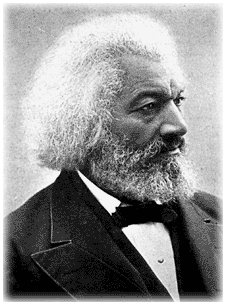The abolitionist movement, which struggled to snuff out slavery in the United States in the years prior to the Civil War, boasted Frederick Douglass as one of its star proponents.
 Early Life
Early LifeWhen he was in his 20s, Douglass met Anne Murray, a free black woman from Baltimore who encouraged and aided Douglass in finding his freedom. He escaped to the free state of New York in 1838 and the two married just a few days after his arrival and settled in Massachusetts.
A Life of Service
Douglass became a preacher in 1839 and began attending abolitionist meetings. He became an anti-slavery lecturer at the age of 23 and was invited to speak at meetings and lecture tours beginning in 1841.
A Narrative of the Life of Frederick Douglass, an American Slave (1845), his memoir which recounts his birth as a slave in Tuckahoe, Maryland, to his escape to Massachusetts in 1838, and acted as a treatise on abolition. It assured him worldwide recognition with its publication. Other works include The Heroic Slave (1853) and My Bondage and My Freedom (1855).
An articulate orator with striking features, Douglass accepted an invitation by the American Anti-Slavery Society to embark on a tour of speaking engagements, thus becoming noted as one of the country's original, outstanding African American speakers. He also lectured for two years in Britain.
Douglass returned to the United States, bought his freedom, and began to publish an abolitionist newspaper, the North Star, in 1847. In 1852, Douglass presented one of his most famous speeches, "What, to the Slave, is the Fourth of July."
President Lincoln accepted Douglass as an advisor during the Civil War. In that capacity, he advocated new constitutional amendments to ensure the vote and other civil rights for black people. Also during the war, he organized two black regiments in Massachusetts.
Advocate for Women's Rights
In 1848, Douglass spoke eloquently in favor of women's suffrage at the Seneca Falls Convention, the first women's rights convention in the U.S. He also ran editorials in favor of women's suffrage in his newspaper, the North Star
and advocated for suffrage until his death.
Late Life & Lasting Legacy
After the war, Douglass served as a government official for the District of Columbia and was U.S. consul-general to Haiti from 1889 to 1891. He presented a utopian vision for immigration and a multi-racial America in his 1867 speech, Composite Nation.
He died in 1895 shortly after receiving a standing ovation at the National Council of Women in Washington, D.C.
Douglass contributed an assertive voice for civil rights during this era of American history and is respected to this day for his struggle against racial inequities.
SOURCES & FURTHER READING
Douglass, Frederick. (1852) "What to the Slave Is the Fourth of July?" In 2021, National Public Radio produced a video of descendants of Douglass reading excerpts from the speech. www.npr.org/2021/07/02/1012680787/frederick-douglass-descendants-read-from-what-to-the-slave-is-the-fourth-of-july
Douglass, Frederick. (1867) Composite Nation. Blackpast. www.blackpast.org/african-american-history/1867-frederick-douglass-describes-composite-nation